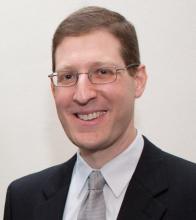
Laughter After: Holocaust Humor in Israel and America
In the aftermath of the Holocaust, survivors in postwar Europe deployed humor as a way to process the recent traumas of the war, to cope with the enormity of the destruction, and to endure the seemingly absurd nature of continued Jewish life after the Holocaust. Humor helped survivors to maintain a sense of psychological advantage while also serving as an outlet for subversive and cynical observations on the postwar world. After the war, humor directed at non-Jewish audiences often focused on using humor as a weapon, to minimize and belittle Nazis (most famously in the work of Mel Brooks). In recent decades, however, as the place of the Holocaust has only grown in contemporary Jewish culture and identity, references to the Holocaust in Jewish humor have grown more frequent, although the function and deployment of such Holocaust humor are substantively different in form and agenda. Rather than deploying humor as a psychological coping mechanism or weapon against Nazis, Holocaust humor has taken on a decidedly more political tone, often used as a means of critiquing the place of the Holocaust in contemporary Jewish society, politics, and culture. This lecture will compare the deployment of Holocaust humor in recent Israeli and American Jewish sketch comedy to assess what humor can teach us about the place of the Holocaust in contemporary Jewish life, and will focus on several examples from Israel and the United States, including the work of Eretz Nehederet (Wonderful Country), HaHamishia HaKamerit (The Camera Quintet), and HaYehudim Ba’im (The Jews are Coming) in Israel, as well as the comedy of Larry David, Sarah Silverman, Amy Schumer, Nathan Fielder, and others in America.


